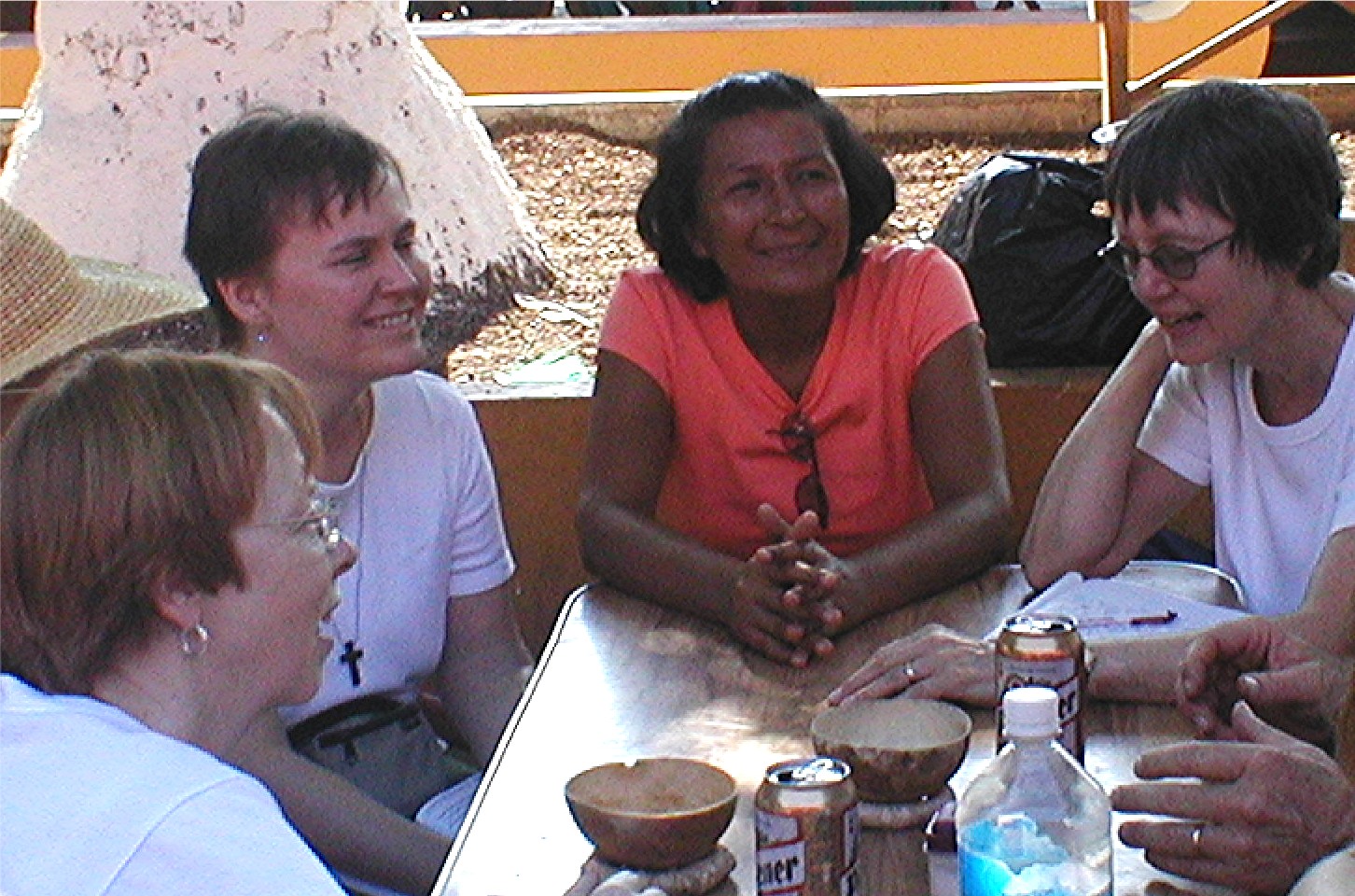World Conference on Women in Beijing. Today, she's a director of the Feminist Consultation, a national network of organizations in El Salvador that lobbies for legislation benefiting women, monitors provisions of the peace accords that affect them, and offers educational and developmental activities for women.
Isabella’s a high flyer in feminist circles, but her real passion is working directly with women struggling to leave prostitution, a major problem in El Salvador. Isabella tells us a story to help us understand how prostitution has come to be such a stumbling block for poor Salvadoran women. Right after the peace accords were signed in 1992, an FMLN candidate was elected mayor of San Salvador. As he was settling into office, someone called him one day wanting to know, how many do you need? Eventually, the new mayor figured out that the caller wanted to know how many young, rural women the mayor wanted to restock brothels in San Salvador. The caller just assumed that the new mayor would want to continue a system that had been a cash cow for the old government. Just as happens in Eastern Europe and other parts of the world, recruiters would visit rural villages in search of young women. Some poor families would sell their daughters outright for cash. Other young women would be lured with offers of high-paying domestic jobs. When the women reached the city, however, they were instead brought to brothels and told that they needed to pay off their “transportation” costs. They were periodically arrested, fined and told that they could pay off the fine with additional work. It was a never-ending cycle that trapped the women in lives of prostitution and made a lot of money for those who ran the brothels. Isabella says that poor women of all ages see prostitution as a last resort. She works with many middle-aged women in San Salvador who have come to the capital from the countryside in desperation, and she’s worked with more than one woman in their 70s.
Isabella tries to teach these women that they have value, that they’re not permanently stained or used up by the abuse they’ve suffered. She tries to help them learn to deal with their children gently and patiently, in ways that are so different from what they themselves have experienced with older, more powerful people. She helps them set up businesses for themselves, like street food stalls. And when the stall fails or they hit their children, Isabella is there to help the women try again. It’s a very practical way of doing Christian theology. She’s done this work for many years through several different agencies, run by different stripes of churches. The program she works with now talks about STDs, hands out condoms and helps HIV-positive women manage their disease. But, the director is an evangelical who previously drove a car with a loudspeaker through the poor neighborhoods of San Salvador, exhorting “you dirty prostitutes, come and be saved before it’s too late,” as Isabella puts it. Working with the many evangelical groups that have found a place in El Salvador is a challenge, Isabella says, because their goal is often conversion, rather than Christian service with no strings attached. But, the women know that evangelicals are usually the only church people who will visit them in their homes, and so they are eager for a relationship with them.

